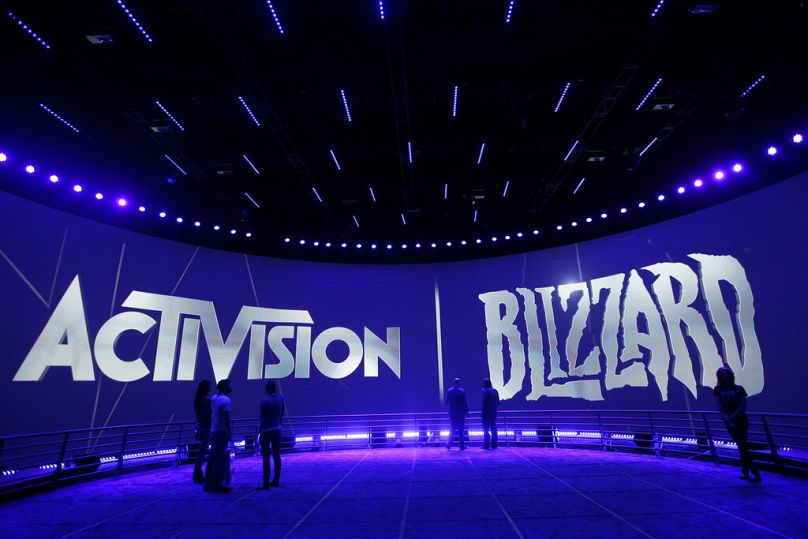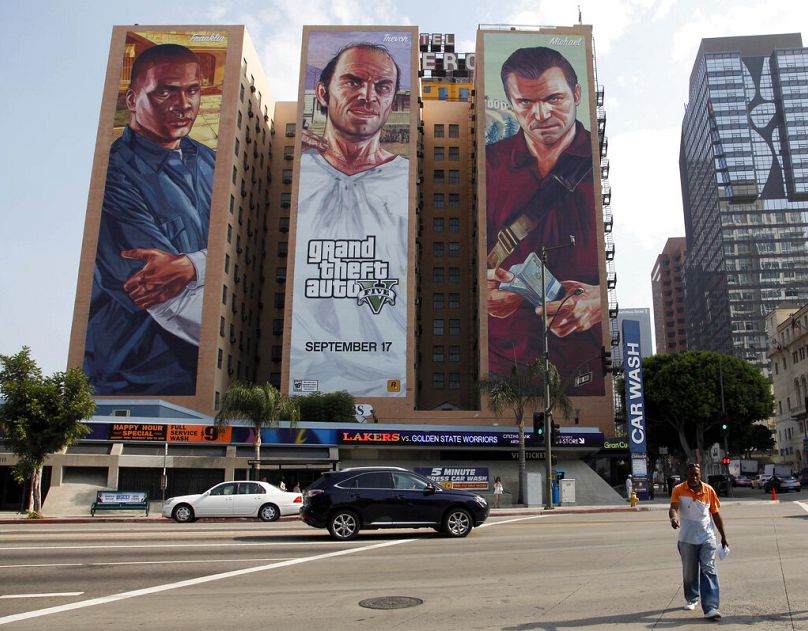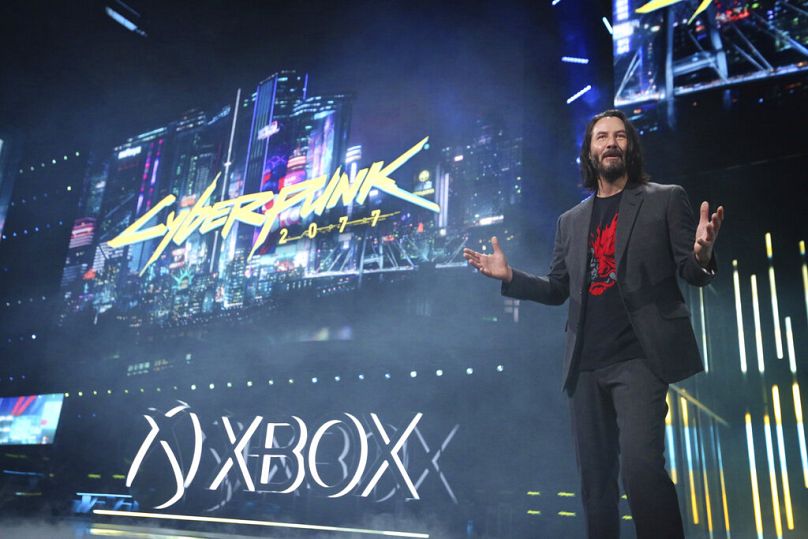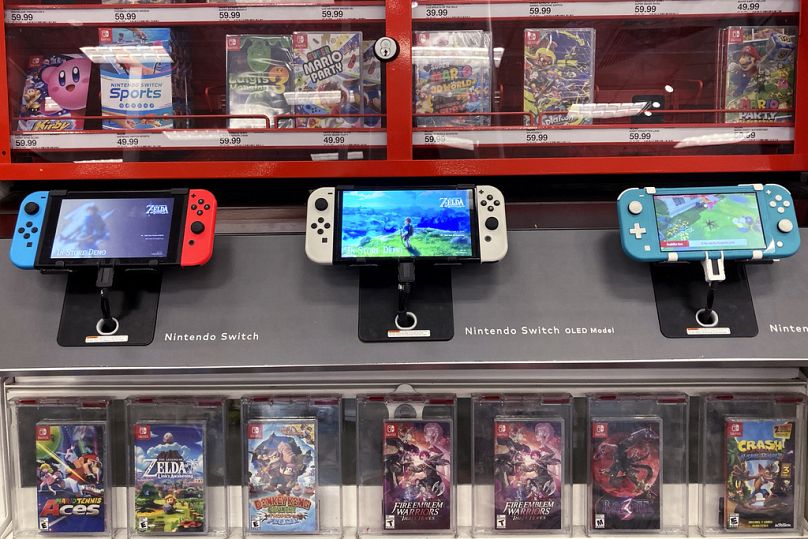Frequent scandals, lawsuits, and general mistreatment stemming from toxic management culture remain common at many video game studios, Paul Tozour writes.
Recession-proof banks, retail chains, and big tech companies are crumbling from economic volatility, and the video game industry serves as a source of financial hope.
 ADVERTISEMENT
ADVERTISEMENT
 ADVERTISEMENT
ADVERTISEMENT
This virtual world is worth more than music and film combined and has no plans to stop growing: by 2026, it should reach $326 billion (€297.8bn) in value, according to a PwC survey.
Gamers were eager to purchase new consoles and games during the 2008 financial crisis, which defined the industry as virtually recession-proof.
However, if the US is approaching another recession, customer interest is likely to plummet if the industry's public reputation remains mediocre.
Frequent scandals, lawsuits, and general mistreatment stemming from toxic management culture remain common at many video game studios.
To protect and further the value of the video game industry, skilled leaders outside gaming must be hired to eliminate harmful work culture and abysmal management practices.
There is a long history of 'frat boy' toxic culture allegations
The video game industry has famously produced countless products like Pokémon, World Of Warcraft, and Call Of Duty that are beloved by all gamers.
But they’ve also been notorious for failed game launches, sexual harassment, excessive forced overtime, aka "crunch", and employee burnout.
Industry giant Activision Blizzard (ATVI) faced an employee walkout in protest of working conditions and was sued by the state of California for a “frat boy” culture that resulted in an employee's suicide.
An employee again sued it for multiple harassment allegations later that year.
Brad Wardell, CEO of niche strategy game developer Stardock, faced similar sexual harassment allegations in 2010, which were later dropped.
He infamously replied to his accuser in an internal email: “I am an inappropriate, sexist, vulgar, and embarrassing person, and I’m not inclined to change my behaviour. If this is a problem, you will need to find another job.”
Industry giant Ubisoft suffered allegations of a "toxic culture," including accusations that certain executives engaged in manipulation and emotional abuse. Riot Games faced employee walkouts and ultimately settled a class-action gender discrimination lawsuit for $100 million (€91.3m).
In 2013, developer Trendy Entertainment created a workplace culture so toxic that current and former video developers at the studio contributed to an article that labelled it "The Video Game Studio From Hell."
No motivation to change
Despite the rampant problems, the industry’s profitability has given it little motivation to evolve. For example, the 2020 release of Animal Crossing: New Horizons sold 39.38 million units in total and became the best-selling game of all time in Japan.
Investors and leaders alike must recognise that success isn't sustainable when it rides on the back of exhausted creatives pushed to their limits.
They must understand that ignoring endemic issues results in irreversible consequences.
Historically, the industry started from college students selling floppy disks with no knowledge of the money machine they were fuelling.
They quickly assumed leadership positions, although they lacked the necessary skills to guide.
These issues are perpetuated by the game industry’s insular culture that refuses to learn from more mature industries. It has developed on its own with little cross-pollination from other industries and promotes internally with no management training.
Failures stemming from incompetence
In many ways, the video game industry functions as an isolated cult that doesn’t welcome outsiders with contrasting beliefs.
This delusion results from a near-total lack of management training and unbelievable numbers of leadership failures.
For example, 3D Realms spent a shocking 14 years and more than $20 million (€18.2m) to develop Duke Nukem Forever and were sued by their publisher before handing development to another studio.
More recently, CD Projekt RED, creators of the wildly successful Witcher game series, hit the wall in 2020 with Cyberpunk 2077.
A nearly unplayable release triggered an investor lawsuit. It also faced countless demands for customer refunds, forcing Sony to pull Cyberpunk 2077 for seven months.
The game industry's artistry, design, and technology continue to evolve at a dizzying pace, but unqualified executives remain.
These leaders are often incapable of managing growing teams and guiding massively complex development projects because they obsess on maximising output in the short term while ignoring the culture and values necessary for long-term growth.
With the industry’s nonstop growth, companies hire and promote leaders with no concern for educating them on the necessary leadership skills.
Qualified leaders could turn the tide
Having well-trained leaders is essential to dismantling the destructive way many studios operate.
Purging immature and reckless management from the equation is a necessary step to cure a potentially fatal business problem.
An unwillingness to accept wisdom from other industries and learn from modern management science underscores the overall immaturity of the gaming industry and all too often holds it back from its true potential.
Some outliers, such as Valve and Supercell, have become wildly successful by explicitly outlining their values and making culture their top priority.
Investors need to pick qualified leaders from outside industries that make values and culture central to operations and institute rigorous leadership training for internal promotions.
Only then will video game studios stop squandering the efforts of brilliant artists, designers, and videogame engineers with deeply incompetent leadership and invest in the future of gaming as a mainstream money maker.
Paul Tozour is a video game industry professional with 28 years of experience, including technical design, AI programming, creative director, and more. He is the author of The Four Swords and the founder of the video game studio Mothership Entertainment.
At Euronews, we believe all views matter. Contact us at view@euronews.com to send pitches or submissions and be part of the conversation.


















